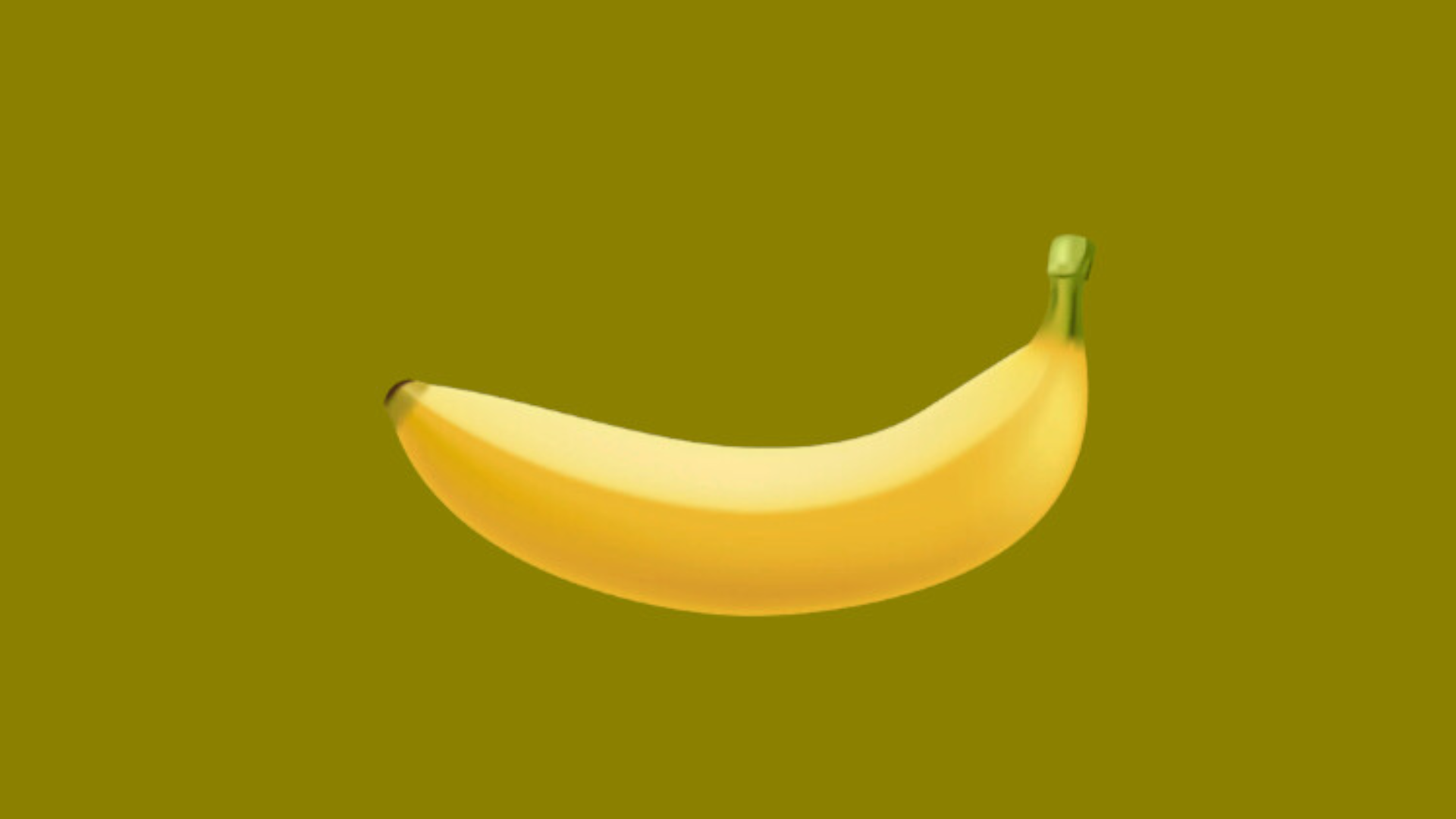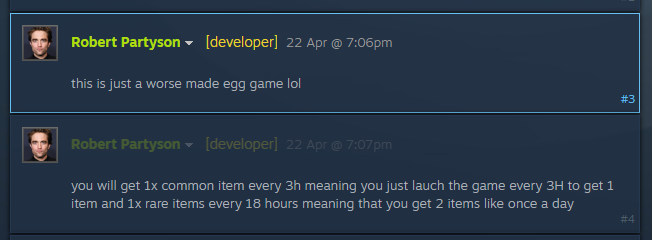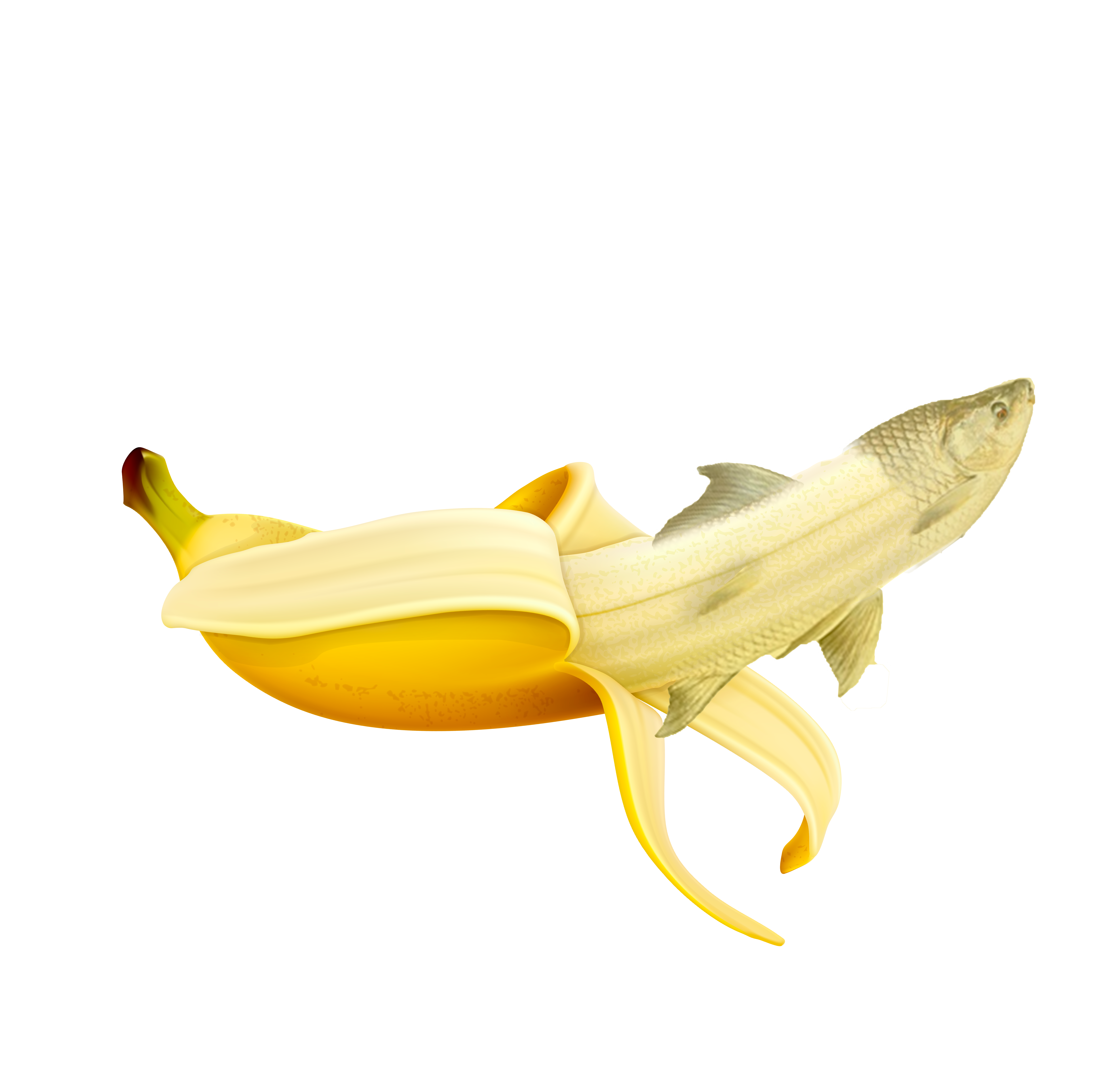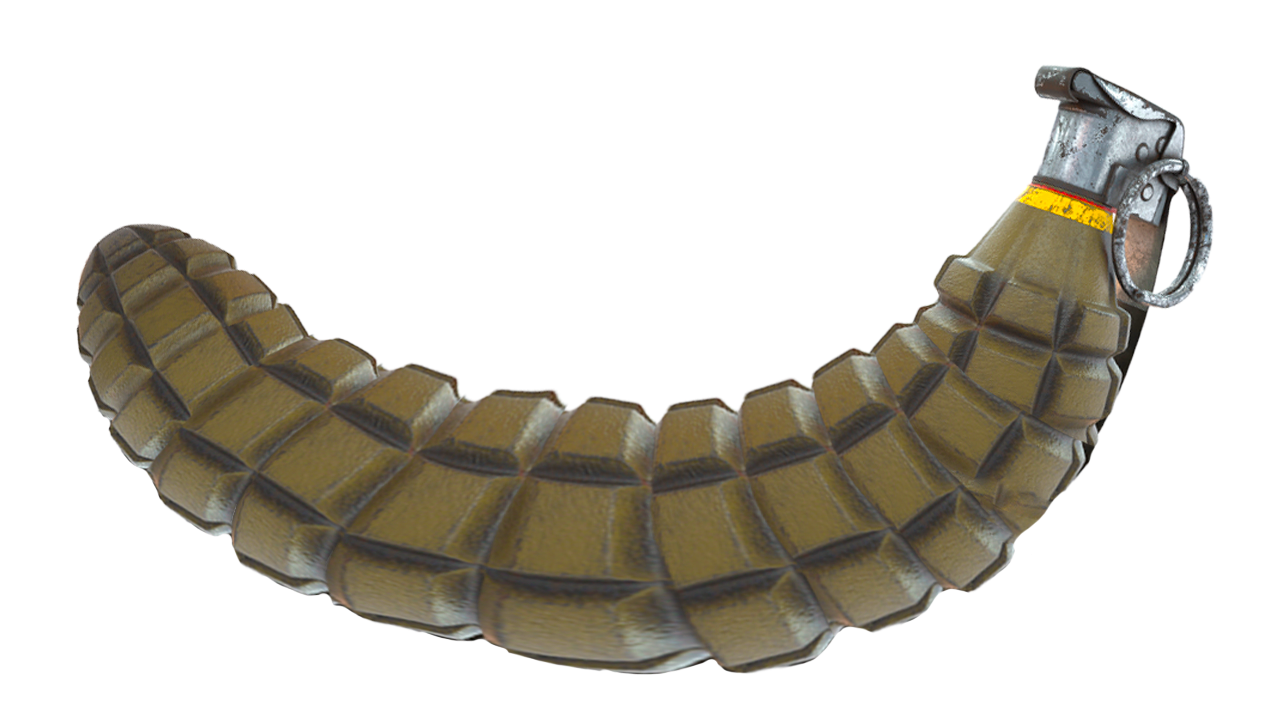'Banana', a game where you rapidly click on a jpeg of a banana and nothing else, has an all-time peak of 31,124 players on Steam—here's why
The egglike genre cometh.

If you happen to check the SteamDB charts from time to time, you might be wondering why Banana, a free-to-play game where you apparently just click on a jpeg of a banana and nothing else, is currently sat at number 47—just four ranks shy of Cyberpunk 2077, and ranking above actual videogames like Fallout 76, Diablo 4, and Slay the Spire.
So was I. So were all of us at PC Gamer, actually, sitting in a call this morning, staring baffled at tens of thousands of active players all clicking a jpeg. Because my torrid work is never finished, I bravely jumped on the grenade and did a little digging—turns out, there's a whole genre of these things, which I shall henceforth dub "egglikes" because I have lost my mind.
Egglikes—again, a term I have fully just invented—spawned from the older (and thus less popular) Egg, which still has over 4,500 people playing it as I write this (with an all-time peak of 11,000 players). Egg is very similar to Banana in that you click on a picture of an egg for the vast majority of your playtime, though you'll mostly be leaving it idle if you value your sanity.
The real games attached to Egg and Banana have precious little to do with the software. Instead, they have everything to do with Steam items. You might have a few of these suckers sitting in your Steam inventory as we speak—earned by playing games you own, these items can be sold on the marketplace for cash that goes into your Steam wallet, or traded 1:1.
They're slightly different from the Steam trading cards you're likely to have a collection of—more like the Banana game's version of TF2 hats. Their prices can fluctuate based on varying factors, meaning that it's possible to play the market by buying low and selling high.
Banana was directly inspired by Egg: Its creator, Robert Partyson (I somehow do not think that is their real name) wrote "this is just a worse made egg game" on the game's Steam forums. "Lol," he added.

Breaking it down, Partyson explains that, as long as you dip into the game to click occasionally, you should get "like 2 items once a day". You can then venture onto the Steam Marketplace to sell them or buy them. There's a handy bot in the (publically available) Discord for Banana which breaks down what you have to actually do to get your saleable items:
The biggest gaming news, reviews and hardware deals
Keep up to date with the most important stories and the best deals, as picked by the PC Gamer team.
"By opening the game and playing for one minute, after that every three hours a banana will be able to be collected by clicking. After playing [for] one hour you unlock the rare drop pool which will drop a banana every 18 hours. Just come back to the game every [3-18] hours and click once." There are also special events for rare, events-based bananas.
Most common bananas sell for a pittance, a few cents at most, though some are listed for hundreds of dollars—like this Diamond banana. Mind, no-one's buying it for that price, with most offers ranging in a far more reasonable $81, but still. Asking around, I'm told by the (genuinely friendly, wholesome) community that the Banana game has two factors—grinding for nanas, and investment.
See, it's actually possible to play egglikes without clicking on eggs, or bananas, or whatever it is, as long as you have a little cash to spend. If you want to interface with these games purely by buying and selling banana jpeg stonks, you absolutely can do that.
Some players are just doing it out of a mixture of philanthropy and general memeage—I watched as one similarly-baffled player asked: "who tf is buying regular bananas, [I] dont understand", to which another player replied: "Me. I buy in bulk from people for a few cards or other bananas … I just want a bunch of them. Which by the way you should let me have yours."
I like to imagine they're collecting all of the bananas into a big swimming pool, and are about to jump into them like the world's softest, most unpleasant Scrooge McDuck dive.
There's also a budding little art community going on, tucked away in this bizarro world corner of the internet. Players can drop in suggestions for bananas into an art channel, and there's some genuine creativity going on from these card sellers amidst all the cursed horrors and copyright infringement.



What surprised me most was a lack of genuine sketchiness—sure, you could make the argument that these aren't really, actually videogames, but Steam's Marketplace has been around for ages, and these are hardly the first idle games that drop items. It's reminiscent of NFTs, just… sans all the speculative, ape-driven nonsense.
It helps that the stakes are pretty low, too—you're just getting cash to spend on other Steam games. The community has less of that big tech bro stank about it, and reminds me more of kids trading rocks in a playground, and I mean that as a compliment. I feel like I cracked open a door expecting to stumble into some secret mafia hideout and instead found a bunch of relatively chill dudes racing their pet snails.
Anyway, both Banana and Egg are free if you want to get in on this… movement? Sure, let's go with that. At the very least, it's devoid of the blockchain nonsense that keeps trying to worm its way into gaming. I'll take speculative Bananas and Egg jpegs over crypto any day.

Harvey's history with games started when he first begged his parents for a World of Warcraft subscription aged 12, though he's since been cursed with Final Fantasy 14-brain and a huge crush on G'raha Tia. He made his start as a freelancer, writing for websites like Techradar, The Escapist, Dicebreaker, The Gamer, Into the Spine—and of course, PC Gamer. He'll sink his teeth into anything that looks interesting, though he has a soft spot for RPGs, soulslikes, roguelikes, deckbuilders, MMOs, and weird indie titles. He also plays a shelf load of TTRPGs in his offline time. Don't ask him what his favourite system is, he has too many.

